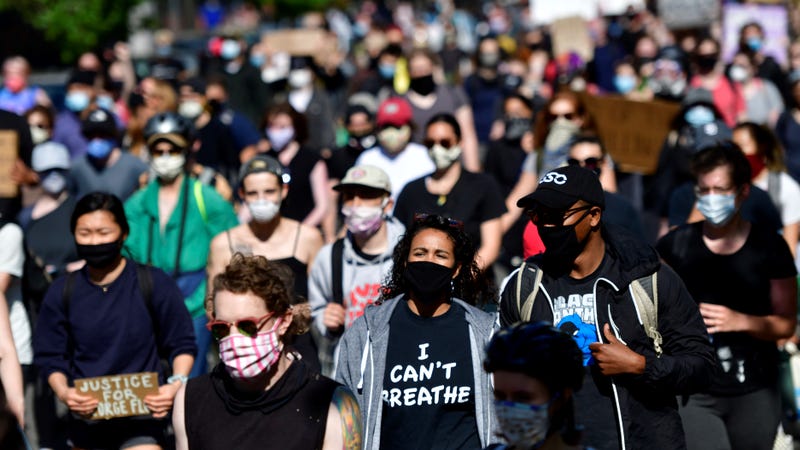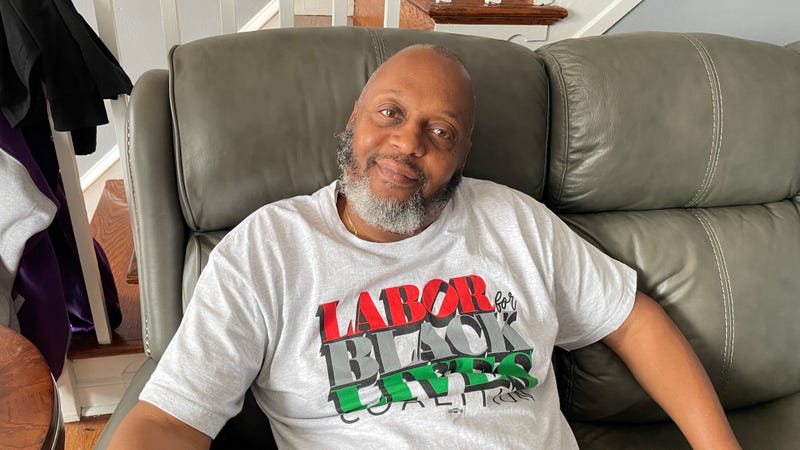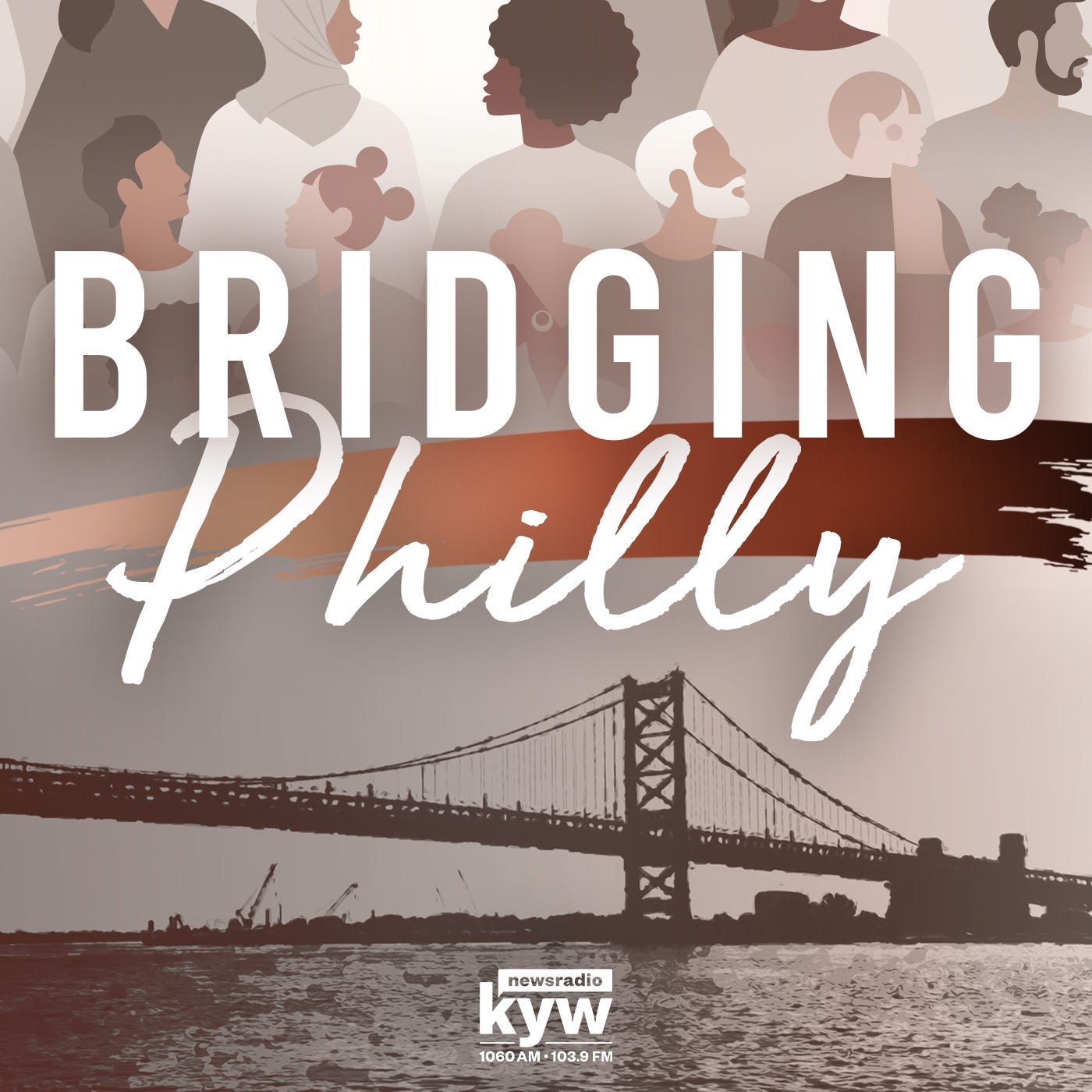
PHILADELPHIA (KYW Newsradio) — It has been two years since the world witnessed the murder of George Floyd at the hands of a Minneapolis police officer.
Since then, communities in Philadelphia have been trying to heal, move forward, and call for change.
The day Floyd was killed, a store clerk suspected that the 46-year-old may have used a counterfeit $20 bill to make a purchase. The police were called as a result, and that was the beginning of his tragic end.
The world watched as officer Derek Chauvin knelt on Floyd’s neck for over nine minutes until he fell unconscious and died.
His dying words: “I can’t breathe.”
Protests broke out around the country and the world. Philadelphia saw both peaceful protests and full-out riots that were later found to have been started by outsiders and opportunists looking to capitalize on civil unrest and unprotected storefronts.
A statue of former Philadelphia mayor Frank Rizzo was taken down, and police pepper-sprayed groups of protesters who were mixed with rioters, even as officers were trying to bring calm to the utter mayhem and destruction.
After the protests, the community looked to heal.
On Wednesday night, a vigil has been scheduled for 4:30 p.m. in front of the north side of Philadelphia City Hall in Floyd’s honor, organized by Philadelphia Labor For Black Lives Coalition.
Organization co-founder Wendell Royster said what he saw two years ago changed his life.

“It really took a part of me as a Black man,” said Royster.
“As a Black male in America, where are we safe? Who do we call? It’s very important to make sure that folks remember George Floyd, because it changed a lot of people’s view of how they look at America.”
That moment has proven tough for relationships between police and the community. Royster said it actually made it harder for police to do their jobs, and it made it more difficult for the community to call on them.
Royster recalled that another incident then shook the city.
“We just saw after George Floyd, here in Philadelphia, it was Walter Wallace,” he said.
In October 2020, Walter Wallace, Jr. was experiencing a mental health emergency when police were called about a domestic dispute. Wallace, 27, emerged with a knife and was peppered with bullets from police after their calls to drop the knife were ignored.
Wallace was killed. One year later, the city settled a lawsuit filed by Wallace’s family, and agreed to equip all patrol officers with stun guns.
How could the city heal when the wound from George Floyd was still fresh?
“It’s almost like you’re dropped into a hole, and you say ‘I have to pull my way out,’ but as you’re trying to pull your way out, people are still dumping all this dirt on you and then you fall down even more,” said Tasnim Sulaiman, founder and CEO of Black Men Heal, which supports the mental health of Black men in Philly.
“You’re like, ‘I took three steps forward and now I’m four steps back.’”
She said healing is hard when these tragic events keep occurring, but she is seeing progress.
“After the George Floyd murder and then the subsequent riots and protests, we experienced about a 400% increase in applicants, and that’s just Black men,” she said.
Black Men Heal started a virtual safe space group called Kings Corner. Men from all over the country joined, including from the United Kingdom and Canada. She said it has been a really beautiful healing space.
But when it comes to trauma, many Black men don’t even realize that they are experiencing it. For many of them, trauma is just life.
“I’ve had men talk about getting shot,” Sulaiman said. “And I say to them, ‘Wait, you never told me you were shot!’ And they say; ‘Well, you never asked.’ To them, it’s not that unique. As they say, they know a lot of people who’ve been shot.”
For many African Americans, George Floyd’s murder re-opened the wounds of the past.
Jermaine Heath, Civic Engagement & Voter Registration Committee chair for the Philadelphia Chapter of 100 Black Men, Inc. said it is important for our youth to acknowledge the history and reckon with the present.
“Our people need to remember these things, and not to get us mad or angry, but to ignite a righteous cause within us to say we’re not going to take this anymore,” said Heath.
At last year’s vigil, the president of the group called for more African Americans to join the police force, but Heath says there need to be systemic changes in order for that to be a successful call to action.
“Is a uniform really going to change our situation? Are we going to help people or are we going to get drafted into the blue cult of ‘When you take this uniform, we have a culture here. We don’t tell on one another,’” he said.
Though there’s growing frustration in the community, Heath said that as history has taught us, real change doesn’t happen quickly.
“Sometimes I believe that it’s in our frustration that we can garner the power to be able to still move forward, have creative ideas, and put things in place so that we as a people can overcome some things,” Heath said.
“Things have to change. Things must change.”
Related podcast: How KYW Newsradio's diverse voices shared their experiences with the George Floyd murder and its aftermath.







